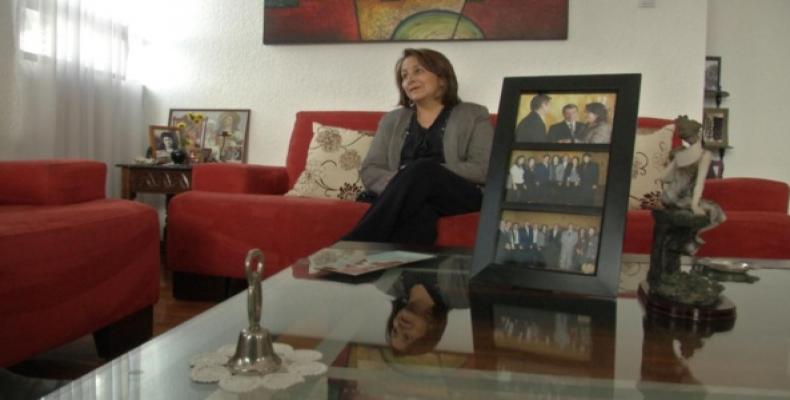Quito, March 14 (teleSUR-RHC) Over 450 victims of human rights abuses and crimes against humanity have been identified in Ecuador as part of a truth commission, and victims are receiving compensation as part of an ongoing project for justice.
Over two-thirds of the 456 abuses, carried out over a thirty year period, occurred under the government of Leon Febres Cordero, from 1984 to 1988.
Kidnapped, imprisoned and tortured on various occasions, Mireya Cardenas, a former member of the revolutionary guerilla group Alfaro Vive ¡Carajo!, is one of these victims. Cardenas was captured by the CIA in August 1985 while changing planes in Costa Rica, en route to attend a conference in Nicaragua.
Under the Law for Victims put forward by the Truth Commission in 2013, victims like Cardenas, and their families, are receiving material and non-material reparation for the crimes committed against them.
Cardenas told teleSUR English, “I was there eight days, without any form of communication, kidnapped, tortured; they used animals, such as dogs and rats, for the psychological and physical torture. After being there for eight days without food, they brought me here to Ecuador, breaking all norms for extradition. They brought me to Ecuador and they turned me into military intelligence.”
“Military intelligence held me for eight more days in what was called “Little Hell,” which was a site, a laboratory, built to torture under the CIA manual. And I do think it was under the CIA manual because in Costa Rica the same torture methods were used as here. In this laboratory ... they gave me electric shocks, made me strip naked, used cold water, they put a hood over my head, witheld food, and also continualy humiliated me and violated me psychologically. And after I left, they took me to prison again,” said Cardenas.
As a form of reparation, Cardenas and other victims from Alfaro Vive ¡Carajo! are working to transform those spaces used for torture and repression into truth museums.
Taking the stories and experiences of the Alfaro Vive ¡Carajo!, and other affected individuals and groups, the Reparation for Victims Program is working to continue providing justice and material as well as non-material reparation for those victims of crimes committed by the state.


